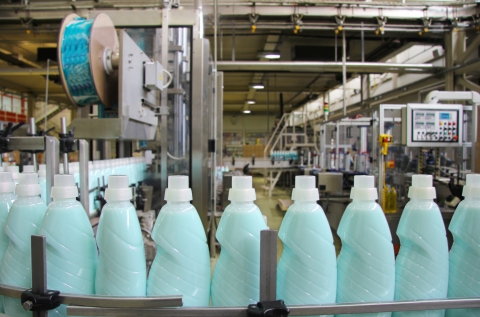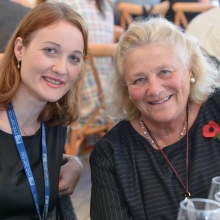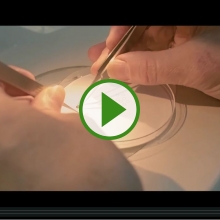Ravit Netzer
Designing proteins to catch proteins
Students

In the long-time tradition of setting a thief to catch a thief, Ravit Netzer is designing proteins to catch proteins.
“Proteins are involved in every aspect of life,” she says. “They convert food into energy. They signal light, taste and smell to the brain. Our enzymes and antibodies are categories of protein. And illnesses from cancer to diabetes to dementia are essentially protein malfunctions. If we can design proteins that recognize the right targets and ignore other molecules, we can create new and very specific therapies."
Netzer, 31, is a doctoral student at the Weizmann Institute’s Feinberg Graduate School, and her fascination with science was kindled under the massive steel tanks of the Zohar Dalia soap and detergent factory on Kibbutz Dalia, near Haifa, where she was born. “Dalia built a soaping kettle, which has grown into Israel’s largest soap and detergent developer and manufacturer,” she says. “As a child, I was endlessly curious about what went on inside those tanks.”
When she took a job during her summer vacation at the plant after 9th grade, she found out—and her curiosity only grew from there. “I worked in the factory’s chemistry lab, helping test soaps and detergents, and I loved every moment,” she smiles. She chose chemistry as a high school elective after that summer, and studied both chemistry and biology at the Hebrew University of Jerusalem for her bachelor’s degree. “I was fascinated by their interface — by the chemical processes that build the human body,” she says.
During her service in the Israel Defense Forces, she discovered she enjoyed research. As an Intelligence Corps soldier and then an officer, she assembled disparate information into a bigger picture. “I wanted to do graduate study, and kept hearing that the Weizmann Institute is the best place for the quantitative chemical and biological research that interests me.”
Rotating in different Institute labs, Netzer encountered the field of computational protein design in the Department of Biomolecular Sciences in Dr. Sarel Fleishman's lab. She had no experience with computation, but quickly learned it was essential to designing proteins. “Even in moderate-sized proteins, there are astronomically large numbers of amino acid sequences,” she says. “Evaluating the quality of different sequences is a job for the computer.”
Netzer joined the lab for her MSc, and is now working toward a PhD, aiming to design proteins that recognize and correct specific problems. “Existing pharmaceuticals that target malfunctioning proteins have mostly been developed by trial and error,” she says. “We’re trying to understand a protein’s basic properties and the form and behavior they give it. The more we understand, the better able we’ll be to make it do what we want.”
Gifted not only scientifically, but also with the ability to make her abstruse research comprehensible to lay audiences, Netzer is a regular on the Science On Tap circuit — a Weizmann Institute program in which its scientists describe their work in Tel Aviv bars to a relaxed audience with beers in hand. Science on Tap gives her 45 minutes to describe her niche subject. An Institute-organized delegation called Scientists of Tomorrow took her and two fellow doctoral students to meet Institute supporters and prospects in Florida and New York in April. “Their enthusiasm blew me away,” she says.

Ravit Netzer's interest in science began as a child on the kibbutz, where she saw the production of soap and detergents.








